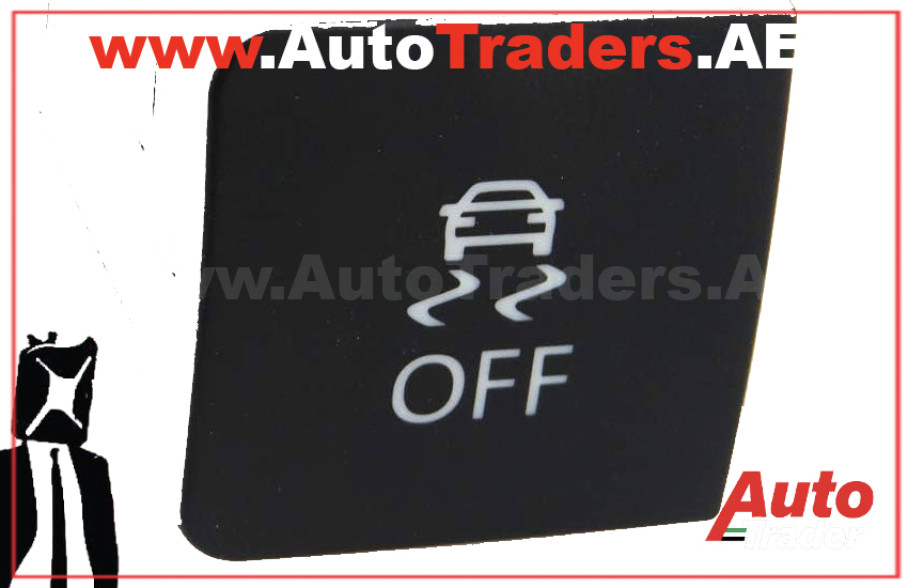Traction control is crucial safety feature in modern vehicles, designed to enhance stability and prevent loss of traction during driving. It utilizes sophisticated technology to regulate wheel spin, especially in slippery or low traction conditions, some drivers prefer to have the option of disabling traction control in certain situations, let take a ride into the concept of traction control, its benefits and potential drawbacks and when it may be appropriate to turn it off.
Traction control is advanced electronic system integrated into vehicle's braking and engine management systems. It monitors the rotational speed of each wheel and detects when one or more wheels are slipping or losing traction. When wheel slip is detected, the system activates to reduce engine power and apply selective braking to the affected wheels to regain traction and stability, The primary advantage of traction control is improved vehicle stability and enhanced safety. It is especially valuable in adverse weather conditions such as rain or snow or ice, where road grip is compromised. By preventing excessive wheel spin, traction control helps the driver maintain control of the vehicle and reduces the risk of skidding or spinning out, traction control contributes to better acceleration performance, especially in vehicles with powerful engines. It allows the driver to put down the engine's power more efficiently, preventing wheel spin and maximizing the vehicle's forward motion.
In most driving scenarios, it is recommended to keep traction control engaged for optimal safety and performance. Traction control is particularly essential for everyday driving on slippery or uneven surfaces and during cornering and when accelerating from stop on wet or icy roads. It provides an extra layer of protection and helps prevent accidents caused by loss of traction, There are certain situations where drivers may choose to turn off traction control, it is crucial to exercise caution and consider the potential risks before doing so.
Here are some instances where drivers may decide to turn off traction control:
- Off-Road Driving: When driving on rough terrain or off-road, such as in sand or mud or gravel, turning off traction control can be beneficial. Off-road conditions may cause wheels to spin unnecessarily, and disabling traction control allows drivers to maintain momentum and navigate challenging obstacles effectively.
- Performance Driving: Enthusiast drivers engaging in spirited driving on closed tracks or controlled environments may prefer to turn off traction control to have more control over power delivery and handling characteristics. This can allow experienced drivers to explore the limits of the vehicle's performance.
- Stuck in Snow: In some situations when vehicle gets stuck in deep snow or mud, turning off traction control can help the driver rock the vehicle back and forth to gain traction and free it from the stuck position.
While turning off traction control may offer some advantages in specific scenarios, drivers should exercise caution and be aware of the potential risks:
- Increased Risk of Skidding: Without traction control, excessive throttle input can lead to wheelspin and skidding, especially on slippery surfaces. This can reduce vehicle stability and compromise safety.
- Loss of Stability Control: Traction control often works in conjunction with electronic stability control ESC to enhance vehicle stability during dynamic maneuvers. Disabling traction control may also deactivate ESC, increasing the risk of loss of control during abrupt maneuvers.
- Reduced Safety in Everyday Driving: On regular roads and in everyday driving conditions, turning off traction control increases the risk of losing control during emergency maneuvers or unpredictable situations.
Traction control is vital safety feature that significantly improves vehicle stability and traction in various driving conditions. Keeping traction control on during regular driving is recommended for optimal safety. However, in specific situations, such as off-road driving or controlled performance environments, drivers may opt to turn it off to gain more control. Nevertheless, drivers must exercise caution and fully understand the implications of disabling traction control, as it can increase the risk of skidding and compromise safety on regular roads. Ultimately, knowing when to keep traction control on or turn it off requires a balanced approach, considering the driving conditions, environment, and skill level of the driver.

